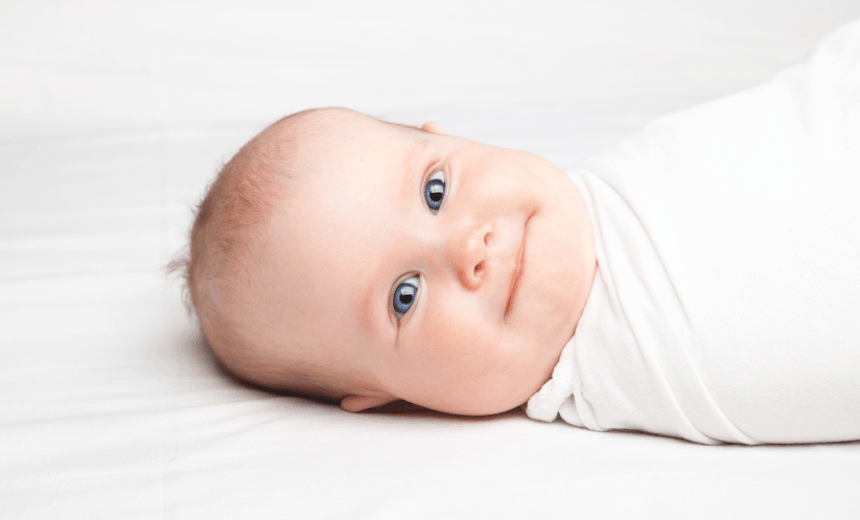What’s the difference between a “normal” name and a “bogan” one? A few hundred years and many thousand dollars in household income, says Madeleine Holden.
The best bogan baby names of 2016 have been revealed, with “best” here meaning “most likely to provoke a satisfyingly superior smirk”. The bogan baby names list is an annual affair created by the tastefully double-barrelled Sabrina Rogers-Anderson, a Canadian-born Australian who is not a bogan herself, and there’s no point beating about the bush regarding its purpose. The list is meant to make you laugh at the sort of people who call their kids things like Daxon, Younique and J’Zayden, namely lower or working class parents.
Rogers-Anderson is particularly aggrieved by “made up” names like Jathon, as opposed to… who knows, natural names? “Samuel and Emily are good, strong names that we dug fresh from the earth when I was a girl,” one can imagine her wistfully saying. “You could still see the mud! Don’t come near me with Macsen and Kyly, though — such nasty, synthetic knock-offs!” It’s nonsense, obviously: all names are made up. The only difference is that “nice” names have been marinating for centuries in the good graces of the upper and middle classes, while “funny” newer names are for poor people.
Rogers-Anderson is at pains to show us she means no harm and even says that there’s “a bit of bogan in all of us”, but there’s no disguising the fact that this is a distancing exercise aimed at those who aren’t as refined and privileged as we are, a “thank God we’re not like that” anxiety purge. It’s meant to be harmless fun, but in fact causes tangible harm to the kids on the receiving end of the joke. There are real-world consequences for people with the wrong kind of names, such as being denied job interviews that the Emmas and Michaels of this world sail into. Researchers have used controlled experiments to prove that if one applies for a job with two sets of CV’s that are identical except for the names used, candidates with white-sounding names are invited to appear at interviews, whereas those with African American-sounding names languish on the applications pile.
It’s not hard to imagine the same dynamic playing out in a New Zealand context. Despite “bogan” usually connoting a working class white person, many of the names on the list belong to kids of Māori and Pacific Island heritage. New Zealand has a reputation for forbidding parents from using names which suggest their children hold certain titles, such as Justice and Princess, or which are simply too bizarre, “embarrassing” or poor taste, like 4Real and Talula Does The Hula From Hawaii (the latter is admittedly excessive, but was it enough to temporarily deprive the parents of custody of their child?).
Decisions on what constitutes an embarrassing name are made by Family Court judges and government officials — people who are almost invariably middle and upper class — and their legal rulings limit the freedom of lower class Māori, Pacific Island and Pakeha families to name their children as they see fit. We roll our eyes when celebrities call their kids Apple, Poppy Honey and Daisy Boo but otherwise leave wealthy parents to do as they please, whereas lower class mums and dads receive the lion’s share of our scorn; their poor naming decisions are treated as signs of moral depravity that need to be regulated by law. The power to forbid a family from calling their child something genuinely offensive like “Anal” makes sense, but what is truly gained, except for a sense of superiority, in telling a family they cannot call their baby “Duke” or “V8”? Does the government foresee genuine chaos if a child is given a royal title as a first name or if it contains letters and numbers, or is it simply at pains to maintain control over the errant lower class?
New Zealand has long maintained a cultural myth that we do not have a class system. Aotearoa was colonised largely by immigrants from the UK, many of whom were keen to throw off the shackles of the British class system, to create a society where everyone had a shot at success regardless of the families into which they were born. New Zealand’s anxiety about so-called bogan baby names reveals the truth about our mainstream culture: despite displaying little overt class consciousness, it’s deeply divided along wealth and ethnic lines.
So perhaps the bogan baby names list isn’t quite the rollicking fun it might seem. In fact, it might well be evidence of our lingering, snooty attitude towards working class Kiwis — or what Prime Minister John Key calls the “underclass”. Because Māori and Pacific Islanders are over-represented in poor communities, there’s an additional layer of ickiness involved in laughing at these infants’ names, too. I’m sorry if I’ve ruined anyone’s afternoon chortle, though. After all, Blade is a pretty strange thing to call a kid — unlike, say, Doug, which is a perfectly normal name for a baby human.
i laugh every time a white person tells me ‘rawiya’ is unusual, listen buddy where i come from ‘craig’ is a weird ass name to give a child
— shaaaky rawiya (@rawiya) November 10, 2013



